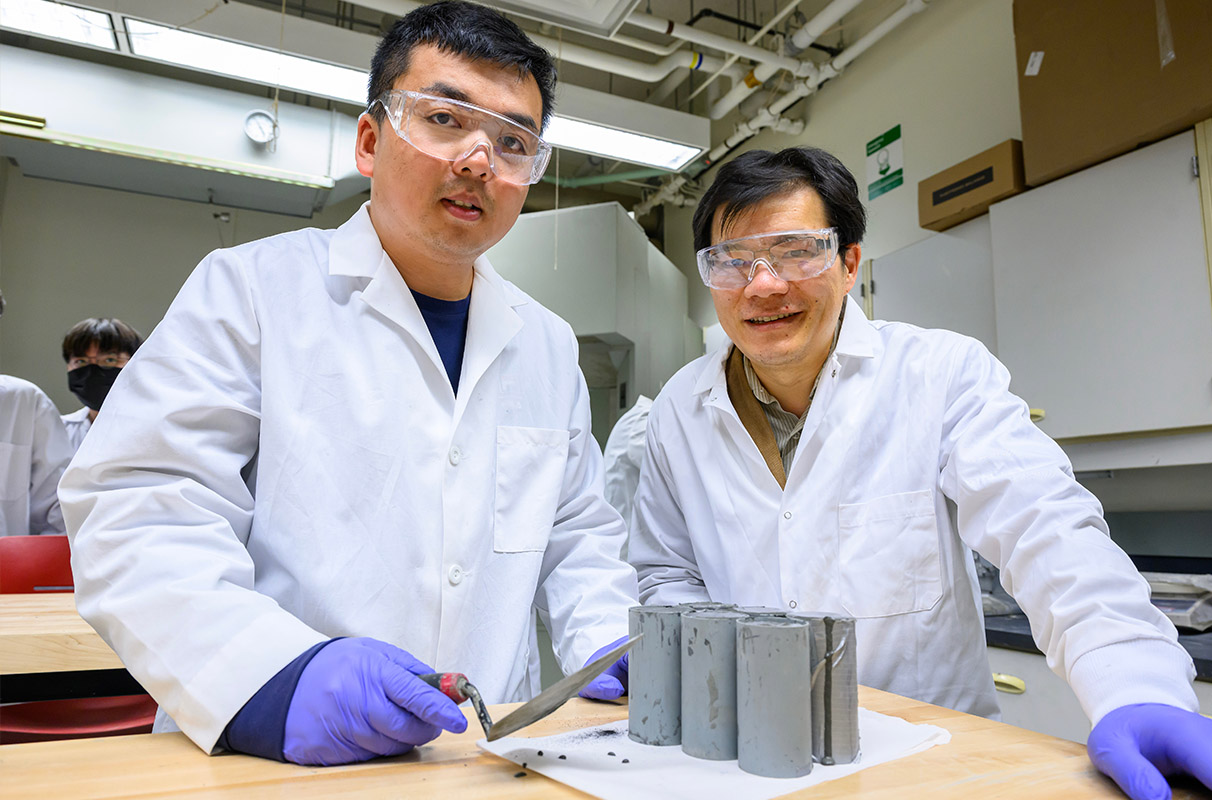A viable formula for a carbon-negative, environmentally friendly concrete that is nearly as strong as regular concrete has been developed.
Researchers at Washington State University (WSU) have infused regular cement with environmentally friendly biochar, a type of charcoal made from organic waste that had been strengthened beforehand with concrete wastewater.
Caustic concrete washout water is a problematic waste material from concrete production, however it is a valuable source of calcium. The researchers used the calcium to induce the formation of calcite, which benefits the biochar and eventually the concrete incorporating the biochar.
The biochar was able to absorb up to 23% of its weight in carbon dioxide from the air while still reaching a strength comparable to ordinary cement. The university says the research could significantly reduce carbon emissions of the concrete industry, so the work has been reported in the journal Materials Letters.
At first, adding just 3% biochar as a substitute in cement to make it more environmentally friendly and reduce its carbon footprint dramatically reduced the strength of the concrete. However, after treating biochar in the concrete washout wastewater, the WSU researchers were able to add up to 30% biochar to the cement mixture.
The paste made of the biochar-amended cement was able to reach a compressive strength after 28 days comparable to that of ordinary cement of about 4000 pounds per square inch.
A provisional patent application has been filed on the carbon-negative concrete work and WSU is actively seeking industry partners to scale up production for field demonstrations and licensing.
Image: Graduate student Zhipeng Li and Professor Xianming Shi at WSU.


